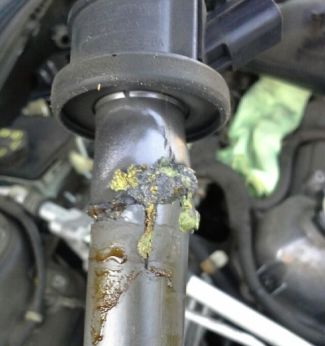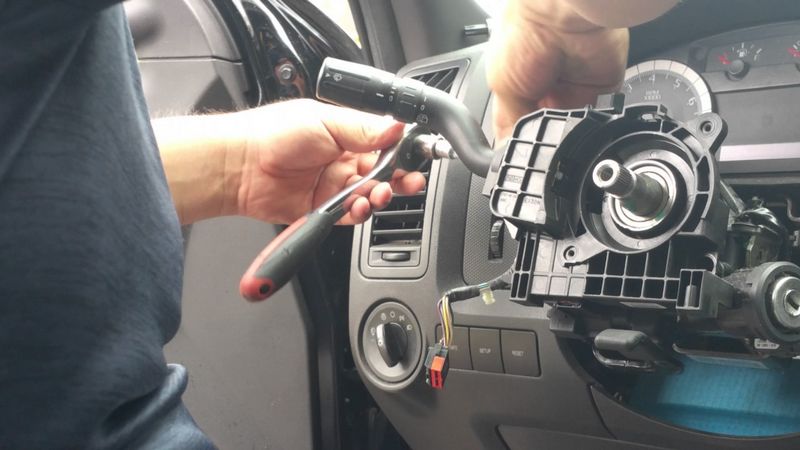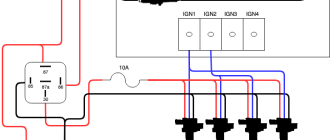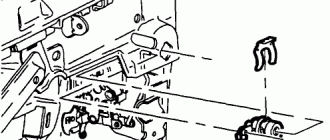
The Most Frequent Ignition Issues And How To Fix Them
When it comes to igniting your vehicle, there are a few common issues that can arise, causing frustration and leaving you stranded. Understanding these ignition problems and knowing how to fix them is essential for any car owner.
One of the most frequent ignition issues is a faulty ignition switch. This can cause the engine to not start or stall while driving. The ignition switch is responsible for sending an electrical signal to the starter, and when it fails, it can disrupt this process. Replacing the ignition switch is typically the best solution to fix this problem.
Another common issue is a worn-out ignition coil. The ignition coil is responsible for creating the spark that ignites the fuel in the combustion chamber. Over time, the coil can become worn or damaged, leading to weak or no spark. Replacing the ignition coil is often necessary to resolve this issue.
Additionally, a clogged fuel filter can cause ignition problems. A fuel filter that is clogged with debris or dirt can restrict the flow of fuel to the engine, resulting in a weak or inconsistent ignition. Regularly replacing the fuel filter can help prevent this issue.
Lastly, a malfunctioning starter motor can also cause ignition issues. The starter motor is responsible for rotating the engine’s flywheel, which initiates the ignition process. If the starter motor fails, it can prevent the engine from starting. Replacing the starter motor is typically required to fix this problem.
In conclusion, understanding the most frequent ignition issues and knowing how to fix them is crucial for every car owner. Whether it’s a faulty ignition switch, a worn-out ignition coil, a clogged fuel filter, or a malfunctioning starter motor, addressing these issues promptly can save you from unexpected breakdowns and costly repairs.
Common Ignition Problems and Solutions
When it comes to ignition issues, there are several common problems that car owners may encounter. Understanding these issues can help you identify and fix them quickly, ensuring that your vehicle starts reliably every time. Here are some of the most frequent ignition issues and how to fix them:
- Ignition switch failure: One of the most common ignition problems is a faulty ignition switch. If your key doesn’t turn or you can’t start your car, the ignition switch may need to be replaced. To fix this issue, you will need to disconnect the battery, remove the steering column covers, disconnect the switch wiring harness, and install a new ignition switch.
- Bad spark plugs: Another common ignition problem is worn-out or faulty spark plugs. If your engine misfires, has poor acceleration, or has trouble starting, the spark plugs may need to be replaced. To fix this issue, simply remove the old spark plugs and install new ones that are recommended for your vehicle’s make and model.
- Ignition coil failure: An ignition coil is responsible for transmitting voltage from the battery to the spark plugs. If the ignition coil fails, your car may have difficulty starting or may stall while running. To fix this issue, you will need to locate the faulty ignition coil and replace it with a new one.
- Dead battery: A dead or weak battery can also cause ignition problems. If your car won’t start at all or turns over slowly, it may be due to a dead battery. To fix this issue, you can jump-start your car with jumper cables or replace the battery if it’s old or damaged.
- Ignition module failure: The ignition module controls the timing and firing of the spark plugs. If it fails, your engine may misfire, have poor fuel efficiency, or not start at all. To fix this issue, you will need to identify the faulty ignition module and replace it with a new one.
Remember, if you’re unsure how to fix any of these ignition problems, it’s always best to consult a professional mechanic. They have the expertise and knowledge to diagnose the issue accurately and recommend the appropriate solution. Ignition issues can be frustrating, but with the right know-how, you can tackle them head-on and keep your vehicle running smoothly.
Key Won’t Turn in Ignition
One of the most frequent ignition issues that car owners face is when the key won’t turn in the ignition. This problem can be frustrating and prevent you from starting your vehicle. Fortunately, there are several potential fixes for this issue that you can try.
Check for Steering Lock: One common reason why the key won’t turn in the ignition is because the steering wheel is locked. Try turning the steering wheel in both directions while attempting to turn the key. Sometimes, the steering wheel lock can get engaged and prevent the key from turning.
Apply Lubrication: Another possible solution is to apply lubrication to the ignition lock cylinder. Over time, dirt and debris can accumulate in the cylinder, causing it to become stiff. Use an aerosol lubricant specifically designed for locks and spray it into the ignition lock cylinder. Insert and remove the key several times to distribute the lubricant evenly.
Check Key Condition: Inspect the key for any signs of damage or wear. If the key is bent, dirty, or worn out, it may not properly engage with the ignition tumblers. In this case, you may need to have a new key made or replace the ignition lock cylinder.
Apply Pressure: Sometimes, the ignition switch may require a bit of extra pressure to turn. While keeping the key inserted, try gently turning it clockwise and counterclockwise while applying slight pressure. Be careful not to use excessive force, as this can break the key or damage the ignition.
Seek Professional Help: If none of these DIY fixes work, it may be best to seek the assistance of a professional mechanic or locksmith. They have the experience and tools necessary to diagnose and fix the issue. They may need to replace the ignition lock cylinder or perform additional repairs.
Remember, when dealing with ignition issues, it’s important to exercise caution and not force anything. If you’re unsure about what to do or feel uncomfortable attempting the fixes yourself, it’s best to consult a professional.
Engine Cranks but Won’t Start
One of the most frequent ignition issues that car owners encounter is when the engine cranks but won’t start. This can be a frustrating problem to deal with, but understanding the potential causes can help lead to a solution.
There are several reasons why this issue may occur. One possibility is a problem with the fuel system. This could include issues such as a clogged fuel filter, a faulty fuel pump, or a lack of fuel pressure. Checking these components and ensuring proper fuel flow can help resolve the problem.
Another common cause is a problem with the ignition system itself. This could be due to a faulty ignition coil, a worn-out spark plug, or a malfunctioning ignition switch. Inspecting these components and replacing them if necessary can often fix the issue.
In addition, electrical issues can also prevent the engine from starting. This could include a dead battery, a faulty starter motor, or a loose or corroded connection. Checking the battery voltage, inspecting the starter motor, and cleaning or tightening any connections can help address these electrical problems.
It is important to note that diagnosing and fixing ignition issues requires some level of mechanical knowledge and expertise. If you are not familiar with car engines and electrical systems, it may be best to seek the help of a professional mechanic.
In summary, when the engine cranks but won’t start, the most frequent ignition issues that could be causing the problem include fuel system problems, ignition system problems, and electrical issues. Understanding how these components work and checking them for faults can help in resolving the issue and getting your car back on the road.
Ignition Switch Failure
An ignition switch failure is one of the most frequent ignition issues that car owners encounter. The ignition switch is responsible for starting and stopping the engine, as well as controlling the electrical power to the rest of the vehicle. When the ignition switch fails, it can lead to a variety of problems.
One of the most common signs of ignition switch failure is when the engine does not start or is difficult to start. This can be caused by a faulty ignition switch that is not sending the proper signal to the starter motor. If you notice that your engine is not turning over or is cranking slowly, it may be due to an issue with the ignition switch.
Another symptom of ignition switch failure is intermittent power loss. The ignition switch controls the flow of electrical power to the various systems in the vehicle, such as the lights, radio, and air conditioning. When the ignition switch is faulty, it can cause these systems to turn on and off sporadically or not work at all.
If you suspect that your ignition switch is failing, it is essential to have it inspected and repaired as soon as possible. Ignition switch failure can leave you stranded or cause further damage to your vehicle if not addressed promptly.
The best way to fix an ignition switch failure is to have it replaced by a qualified mechanic. They will be able to diagnose the issue and install a new ignition switch if necessary. It is not recommended to attempt to replace the ignition switch yourself, as it is a complex task that requires specialized tools and knowledge.
In conclusion, ignition switch failure is one of the most frequent ignition issues car owners face. If you experience difficulty starting your engine or notice intermittent power loss, it may be a sign that your ignition switch is failing. It is important to have it inspected and repaired by a professional to avoid further complications.
Spark Plug Issues
One of the most frequent ignition issues that car owners encounter is related to spark plug problems. Spark plugs play a crucial role in the ignition process by providing the necessary spark to ignite the air-fuel mixture in the combustion chamber. When spark plug issues arise, it can lead to various issues with engine performance.
One common spark plug issue is fouling. Fouling refers to the build-up of deposits on the spark plug, which can hinder the spark from properly igniting the fuel mixture. This can result in a misfire, decreased power, and poor fuel efficiency. Regularly checking and cleaning or replacing fouled spark plugs can help resolve this issue.
Another spark plug issue is wear and tear. Over time, spark plugs can wear out due to the constant exposure to high temperatures and the electrical charge required for ignition. A worn-out spark plug may have a weak or inconsistent spark, leading to issues such as engine hesitation, rough idling, and difficulties starting the vehicle. Replacing worn spark plugs with new ones can usually fix this problem.
Additionally, incorrect spark plug gap can cause ignition issues. The spark plug gap refers to the distance between the center and ground electrode of the spark plug. If the gap is too small or too wide, it can affect the spark intensity and ignition timing. This can result in poor engine performance, misfires, and increased fuel consumption. Checking and adjusting the spark plug gap according to the manufacturer’s recommendations can resolve this issue.
In conclusion, understanding and addressing spark plug issues is crucial for maintaining optimal engine performance and fuel efficiency. By addressing and fixing the most frequent spark plug issues like fouling, wear and tear, and incorrect gap, car owners can ensure a smooth and efficient ignition process.
Faulty Ignition Coil
One of the most frequent ignition issues that car owners face is a faulty ignition coil. The ignition coil is responsible for transforming the battery’s low voltage into the high voltage required to spark the spark plugs. When the ignition coil is faulty, it can cause a variety of issues with the ignition system.
Some common symptoms of a faulty ignition coil include difficulty starting the engine, rough idling, misfires, and a decrease in engine power and fuel efficiency. If you are experiencing any of these issues, it is important to have your ignition coil checked and, if necessary, replaced.
Fixing a faulty ignition coil typically involves replacing the coil with a new one. This can be a relatively simple process for those familiar with car maintenance and repair. However, it is recommended to consult a professional mechanic to ensure proper installation and to diagnose any additional issues that may be contributing to the problem.
Regular maintenance and inspections can help prevent ignition coil issues. Checking the ignition system regularly and replacing faulty coils as soon as they are detected can save you from more serious and costly issues down the line.
| Difficulty starting the engine |
| Rough idling |
| Misfires |
| Decrease in engine power |
| Decrease in fuel efficiency |
Ignition Timing Problems
Ignition timing problems are a frequent issue that can cause various ignition issues in a vehicle. The timing of the ignition system is crucial for the engine to function properly. If the ignition timing is off, it can lead to starting problems, misfiring, and poor performance.
One of the most common ignition timing problems is incorrect timing. This can occur due to a faulty distributor, worn-out timing chain, or a damaged ignition control module. To fix this issue, it is important to determine the cause of the incorrect timing and replace or repair the faulty components.
Another ignition timing problem is advanced or retarded ignition timing. Advanced ignition timing means that the spark occurs too early in the engine cycle, while retarded ignition timing means the spark occurs too late. Both of these issues can result in engine knocking, decreased power, and increased fuel consumption.
To fix advanced or retarded ignition timing problems, the correct timing needs to be set. This can be done by adjusting the distributor or using a timing light. It is recommended to consult the vehicle’s manual or seek professional help to ensure the timing is set accurately.
Additionally, ignition timing problems can also be caused by a malfunctioning ignition coil or spark plugs. A faulty ignition coil can lead to weak sparks or no sparks at all, while worn-out or fouled spark plugs can affect the ignition process. In these cases, replacing the ignition coil or spark plugs can resolve the issue.
In conclusion, ignition timing problems can cause frequent ignition issues in a vehicle. It is important to identify and fix these problems to ensure proper engine performance. By understanding how ignition timing works and addressing the underlying issues, you can prevent starting problems, misfiring, and other ignition-related issues.
Dead Battery
A dead battery is one of the most frequent ignition issues. It can happen when your vehicle’s battery is old, damaged, or drained due to leaving the lights on or other electrical components running.
To fix a dead battery, you can try jump-starting your vehicle using jumper cables and another vehicle with a working battery. Connect the positive (red) cable to the positive terminals of both batteries and the negative (black) cable to the negative terminal of the working battery and a metal part of your vehicle’s engine. Start the working vehicle and allow it to run for a few minutes. Then, try starting your vehicle. If it starts, let it run for a while to recharge the battery. If it doesn’t start, you may need to replace the battery.

If jump-starting the vehicle doesn’t work or if the battery keeps dying, it’s recommended to have your battery tested and, if necessary, replaced. You can take your vehicle to a mechanic or an automotive parts store to have the battery tested. If the battery is faulty, replacing it should solve the issue.
To prevent a dead battery, it’s important to regularly check the battery’s condition, clean the battery terminals, and ensure that all lights and electrical components are turned off when your vehicle is not in use. Additionally, if you’re not planning on using your vehicle for an extended period, it’s a good idea to disconnect the battery or use a battery tender to keep it charged.
By taking these steps, you can avoid the inconvenience of a dead battery and ensure that your vehicle’s ignition system remains in good working condition.
Ignition System Diagnostics
When it comes to ignition issues, diagnosing the problem correctly is crucial in order to fix them effectively. Here are some common ignition issues and how to diagnose them:
- Ignition Coil Failure: One of the most frequent ignition issues is a faulty ignition coil. To diagnose this issue, use a multimeter to check the resistance of the coil. If the resistance is outside the specified range, the coil may need to be replaced.
- Spark Plug Problems: Another common ignition issue is related to spark plugs. Check for fouling, worn electrodes, or broken insulators. If any of these issues are found, the spark plugs should be replaced.
- Fuel Delivery Problems: Ignition problems can also be caused by issues with fuel delivery. Check the fuel pump, fuel filter, and fuel injectors for any clogs or malfunctions. Clear any obstructions or replace any faulty components.
- Distributor Cap and Rotor Issues: The distributor cap and rotor are critical components of the ignition system. Look for signs of wear, such as carbon deposits, cracks, or corrosion. If any of these issues are present, replace the distributor cap and rotor.
- Ignition Switch Failure: If the ignition system is not functioning at all, the ignition switch may be the culprit. Test the switch for continuity and replace if necessary.
Remember to always consult the vehicle’s service manual for specific instructions and specifications when diagnosing and fixing ignition issues. If in doubt, it is recommended to seek the assistance of a professional mechanic.
The Importance of Regular Maintenance
Regular maintenance is crucial when it comes to preventing frequent ignition issues and ensuring the longevity of your vehicle. By regularly maintaining your ignition system, you can avoid costly repairs and breakdowns.
One of the most common ignition issues is a faulty spark plug. If ignored, it can lead to difficulty starting the engine and poor fuel efficiency. Regularly inspecting and replacing spark plugs can help prevent this problem.
Another frequent issue is a worn-out ignition switch. If the switch is not functioning properly, it can cause intermittent starting problems or even prevent the engine from starting at all. Regularly checking the ignition switch and replacing it when necessary can save you from a frustrating and inconvenient situation.
The ignition coil is another critical component that can cause issues if not properly maintained. A faulty ignition coil can result in misfires or a complete lack of ignition. Regularly testing and replacing the ignition coil can help avoid these problems.
Regular maintenance also involves keeping the ignition system clean and free from dirt and debris. Cleaning the ignition system regularly can prevent issues such as misfires or a weak spark. It is essential to keep the ignition system clean to ensure optimal performance.
In summary, regular maintenance of the ignition system is crucial for preventing the most frequent ignition issues and ensuring the longevity and performance of your vehicle. By regularly inspecting, testing, and replacing components, you can avoid costly repairs and breakdowns, and keep your vehicle running smoothly.
Preventing Ignition Issues
Preventing ignition issues is crucial to keeping your vehicle running smoothly. By taking some simple steps, you can minimize the chances of encountering frequent ignition issues and increase the lifespan of your ignition system.
First, make sure to regularly check and replace your spark plugs. Over time, spark plugs can become worn, leading to misfires and difficulty in starting your engine. By replacing them on a scheduled basis, you can avoid potential ignition issues.
Next, keep your ignition system clean and free of debris. Dust, dirt, and grime can accumulate in and around your ignition system, causing it to malfunction. Regularly clean the area and ensure that there are no obstructions that could interfere with proper ignition.
Additionally, ensure that your battery is in good condition. A weak or dead battery can greatly impact your ignition system’s performance. Regularly test your battery and replace it if necessary to avoid any issues.
Furthermore, using high-quality fuel can also prevent ignition issues. Low-quality or contaminated fuel can lead to buildup in your fuel system, causing clogs and affecting proper ignition. Stick to reputable gas stations and avoid using old or expired fuel.
Lastly, consider investing in regular maintenance and tune-ups for your vehicle. A professional mechanic can inspect and identify potential issues before they become major problems. Regular maintenance can help catch any ignition issues early on, saving you time and money on repairs in the long run.
By following these tips and taking preventative measures, you can minimize the chances of encountering ignition issues and ensure that your vehicle is running smoothly.
When to Seek Professional Help
If you are experiencing frequent ignition issues and are unsure of how to fix them, it may be time to seek professional help. Ignition problems can be complicated and require the expertise of a trained technician. Attempting to fix these issues on your own can often lead to further damage and potentially more expensive repairs.
A professional mechanic will have the knowledge and experience to diagnose the root cause of the ignition problem and provide effective solutions. They will use specialized tools and equipment to accurately assess the situation and ensure that the issue is resolved correctly.
Some of the most common ignition issues include faulty spark plugs, a malfunctioning ignition switch, and a worn-out ignition coil. These issues can be tricky to diagnose and fix, especially if you don’t have the necessary skills and experience.
Additionally, a professional will be able to identify any underlying issues that may be contributing to the ignition problem. For example, a failing battery or a clogged fuel injector can often cause ignition issues. A trained technician can identify and address these issues to prevent further problems down the line.
Remember, it’s always better to be safe than sorry when it comes to your vehicle’s ignition system. If you are unsure of how to fix ignition issues or suspect that there may be other underlying problems, don’t hesitate to seek the help of a professional mechanic. They can provide you with the expertise and assistance needed to get your ignition system back in working order.
Replacing the Ignition System
If you are experiencing frequent ignition issues and are unsure how to fix them, it may be time to consider replacing the ignition system. The ignition system is responsible for starting your vehicle’s engine, and any issues with it can cause a variety of problems.
To determine if your ignition system needs to be replaced, you should first identify the most common ignition issues. These include a vehicle that won’t start, a key that won’t turn in the ignition, or a vehicle that stalls while driving.
Once you have identified these issues, you can proceed with replacing the ignition system. This process involves removing the old ignition system and installing a new one. It is important to ensure that you have the correct replacement ignition system for your vehicle make and model.
Before starting the replacement process, it is recommended to have a basic understanding of how the ignition system works. This will help you navigate the replacement process with ease.
Replacing the ignition system can be a complex task, so it is often advisable to seek professional assistance. A professional mechanic will have the necessary tools and expertise to properly replace the ignition system in your vehicle.
Overall, replacing the ignition system is a crucial step in resolving frequent ignition issues. By taking the necessary steps to properly replace the ignition system, you can ensure that your vehicle’s engine starts smoothly and functions properly.
Common Mistakes to Avoid
When it comes to ignition issues, there are a few common mistakes that many people make. These mistakes can often make the problem worse or even cause additional issues. It’s important to be aware of these mistakes and know how to avoid them in order to effectively fix the most frequent ignition issues.
| Mistake | Description | Solution |
| Using the wrong type of spark plug | Using a spark plug that is not compatible with your vehicle can lead to improper combustion and ignition issues. | Consult your vehicle’s manual or a qualified mechanic to ensure you are using the correct spark plugs for your specific model. |
| Ignoring regular maintenance | Failing to perform regular maintenance, such as changing spark plugs and inspecting ignition coils, can lead to decreased performance and increased ignition issues. | Follow your vehicle’s recommended maintenance schedule and perform regular checks and replacements as needed. |
| Failure to address underlying issues | Fixing the immediate ignition issue without addressing any underlying issues can lead to recurring problems. | Whenever you encounter an ignition issue, make sure to investigate and fix any underlying problems to prevent future issues. |
| Incorrectly adjusting the ignition timing | Adjusting the ignition timing incorrectly can cause misfires and poor engine performance. | Refer to your vehicle’s manual or seek professional help to ensure the ignition timing is properly adjusted. |
By avoiding these common mistakes, you can effectively fix the most frequent ignition issues and keep your vehicle running smoothly.
Q&A:
What are some common ignition problems in vehicles?
Some common ignition problems in vehicles include a faulty ignition switch, a worn-out ignition coil, a dead battery, and spark plug issues.
How can I tell if my ignition switch is faulty?
If your ignition switch is faulty, you may experience problems starting your vehicle, such as the engine not turning over or the dash lights not coming on. You can also check the ignition switch by testing the voltage with a multimeter.
What are the signs of a worn-out ignition coil?
Signs of a worn-out ignition coil include misfires, rough idle, difficulty starting the engine, decreased fuel efficiency, and a noticeable decrease in power and acceleration.
How can I fix a dead battery issue?
To fix a dead battery issue, you can try jump-starting the vehicle with jumper cables and a working vehicle. If the battery is old and no longer holds a charge, you may need to replace it with a new one.






